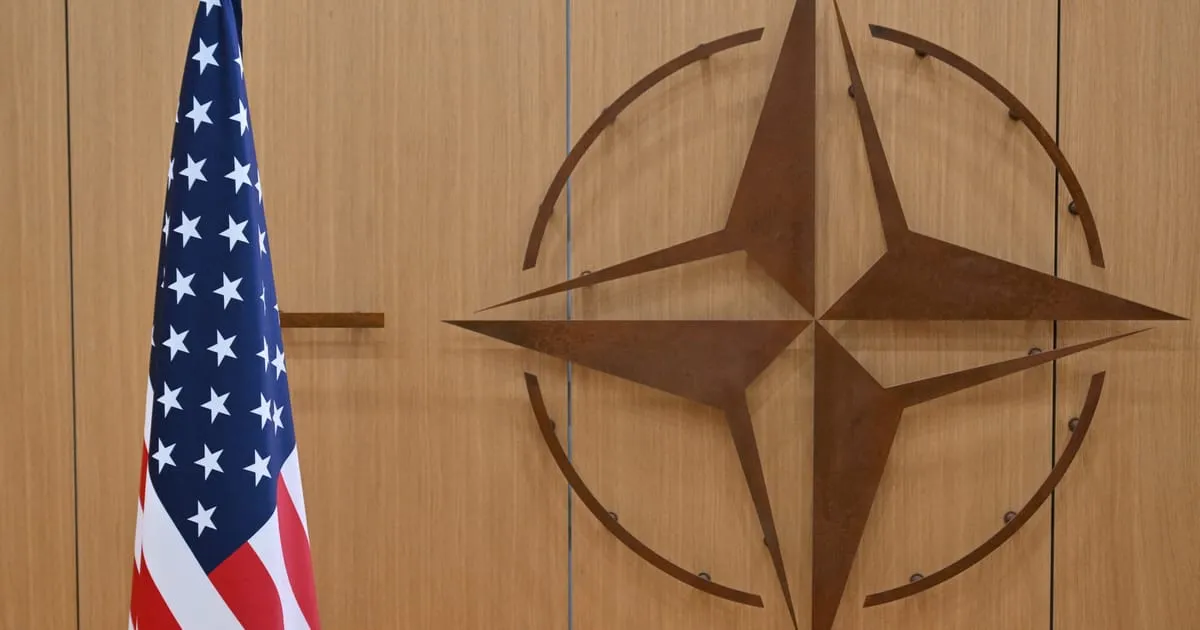
Intelligence sharing among NATO countries is facing significant challenges as member nations grow increasingly cautious of one another. Current and former officials from across the alliance expressed concerns to POLITICO that the political turbulence unleashed by Donald Trump is exacerbating these issues. The long-standing tensions, particularly between traditional Western members and newer entrants from ex-communist countries, have intensified since Russia's invasion of Ukraine.
The recent actions of pro-Russia nations like Hungary and Slovakia have raised alarms among NATO officials, who describe these countries as unreliable partners in intelligence matters. Eight current and former NATO and security officials, who spoke under conditions of anonymity, pointed out that the skepticism surrounding intelligence sharing has deepened. The shifting stance of the United States towards Russia under Trump has led many member countries to question the security of sharing vital intelligence with Washington.
This week, reports emerged that the U.S. had temporarily halted intelligence sharing with Ukraine to exert pressure for negotiations with Russia. Julie Smith, the U.S. ambassador to NATO until November, noted that there are “whispers in the halls of NATO” regarding the future of intelligence sharing, highlighting that some allies are worried about whether the U.S. will continue its robust support.
Daniel Stanton, a former official at Canada's foreign intelligence service CSIS, remarked that, “at a time when they actually need more intelligence, there will be less going into it.” He emphasized that there’s less consensus on identifying a common enemy, leading member nations to be more hesitant in sharing critical information.
The appointment of Tulsi Gabbard as Trump's director of national intelligence has further fueled apprehensions. Gabbard has been criticized for echoing Russian narratives regarding conflicts in Ukraine and Syria and for her controversial meeting with former Syrian President Bashar Assad. Additionally, reports have surfaced about White House officials pushing to remove Canada from the Five Eyes intelligence-sharing network, a major alliance that includes the United Kingdom, Australia, and New Zealand.
While some officials maintain that the U.S. shift has not yet impacted intelligence sharing, they remain cautious about potential future repercussions. A current NATO official acknowledged that following a problematic meeting between Ukrainian President Volodymyr Zelenskyy and Trump, there were many unanswered questions, despite efforts to maintain calm. The official noted that while there is concern regarding the approach to Ukraine, Trump’s main issue with NATO appears to revolve around defense spending.
The sharing of intelligence within NATO’s 32 member states is never as seamless as that among the Five Eyes nations, primarily due to fears of leaks and suspicions that certain national agencies may have been compromised by Russian influence. Stanton highlighted that allies are reluctant to fully disclose their most sensitive information, fearing it may fall into hostile hands.
Effective intelligence sharing has historically proven vital for NATO, as evidenced when the Biden administration successfully alerted allies about Russia's preparations to invade Ukraine. However, the political landscape has shifted dramatically under Trump, raising questions about the reliability of U.S. intelligence moving forward. Smith remarked on the uncertainty surrounding whether intelligence sharing will remain a cornerstone of transatlantic cooperation, especially amid concerns regarding U.S. impartiality in the ongoing Ukraine conflict.
Since the fall of communism, Western intelligence services have been particularly cautious about sharing significant information with their counterparts in former Warsaw Pact countries. This wariness has persisted, particularly concerning Hungary's security services under the leadership of Viktor Orbán, as well as Slovakia's evolving political landscape with pro-Kremlin influences. Officials report that intelligence sharing regarding Russia, China, and technical developments in military capabilities is increasingly conducted bilaterally or within smaller, trusted groups.
Gustav Gressel of the National Defense Academy Vienna noted that Hungarian intelligence is only informed about urgent counter-terrorism threats, indicating a clear hesitance to share broader intelligence that could potentially benefit Russia. This trend of selective information sharing is not limited to Hungary and Slovakia; other countries like Bulgaria are also limiting intelligence access due to concerns about Russian assets infiltrating key services.